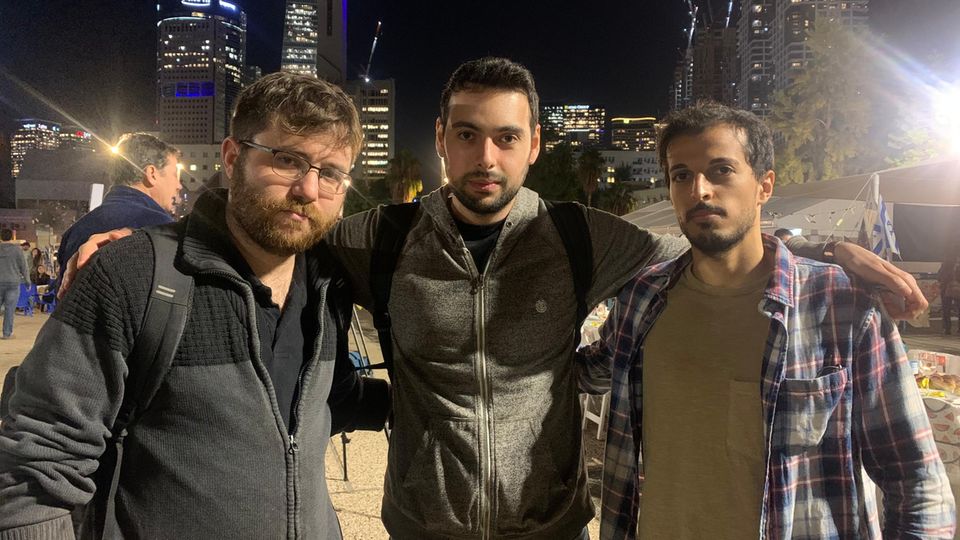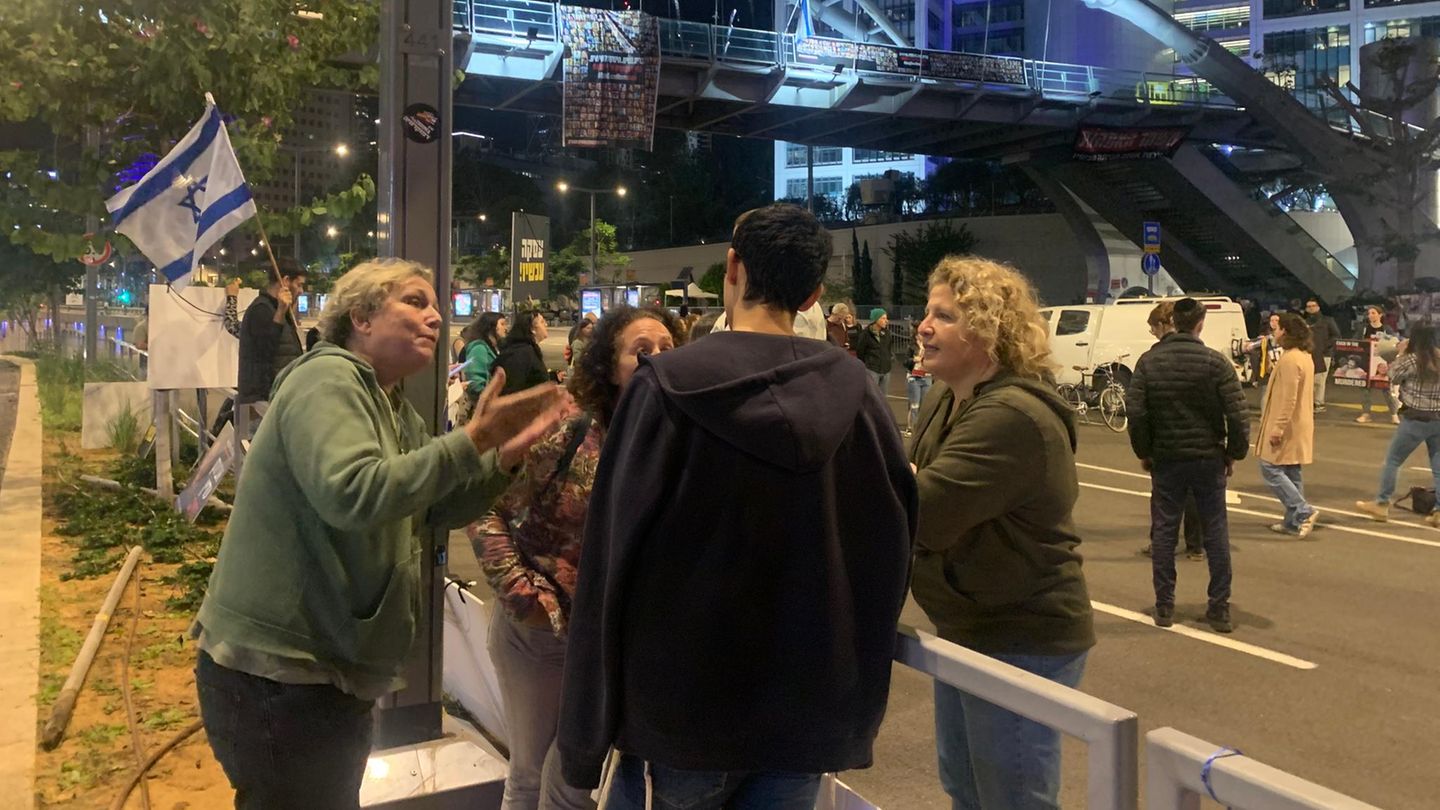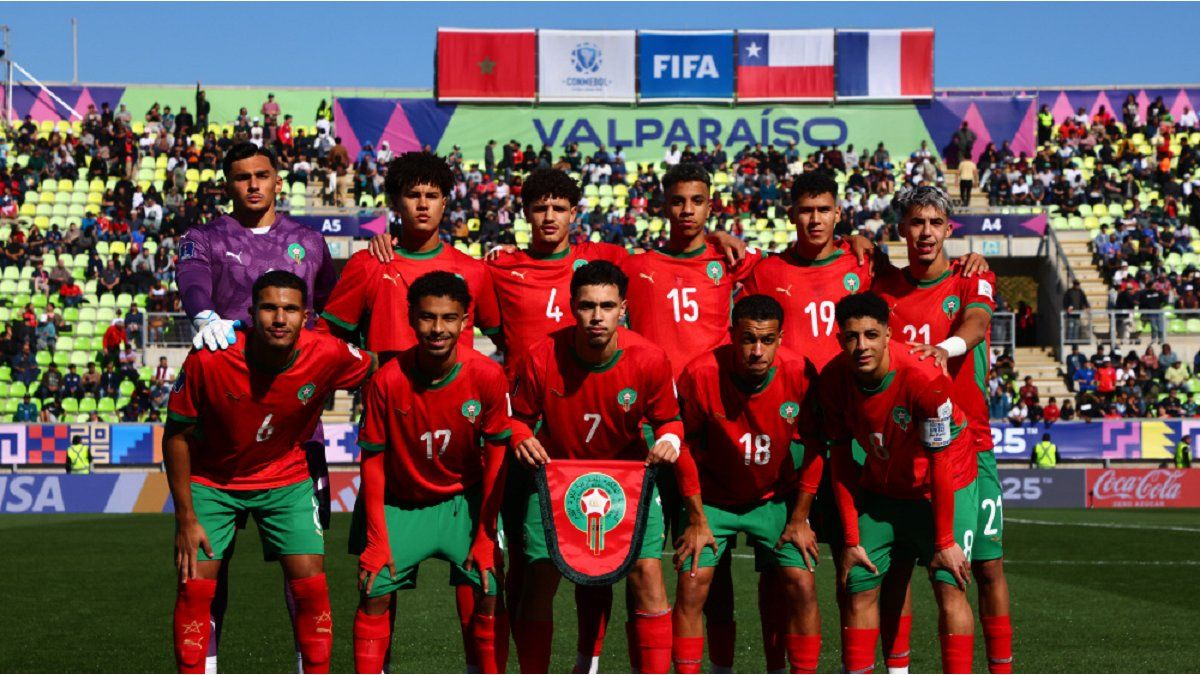While Prime Minister Netanyahu and his cabinet discuss a prisoner exchange with Hamas, the relatives of the hostages fear, hope and demonstrate on the streets. The decision finally comes late at night.
It was shortly before midnight when the three young women sat down on the curb in front of the Ministry of Defense in Tel Aviv. “They test our endurance,” says Alma Beck, 35, who has been carrying a sign around with her all evening. “Hostage Agreement – Ceasefire,” it says. She and her two friends have been standing here for hours, shouting: “Bring her home, now” in the direction of the glass towers behind which the politicians are negotiating. The government is discussing whether and under what conditions Israel should accept the deal with Hamas. It reads: 50 hostages held captive by the terrorist organization in the Gaza Strip are to be exchanged for more than three times as many Palestinian prisoners. There should be a temporary ceasefire and possibly truck deliveries to the Gaza Strip – what of Hamas would provide a breathing space and new resources.
Hundreds of demonstrators scream their desperation into the night sky, including several mothers Children were kidnapped.
“What are you waiting for?” one calls into her megaphone. “What are you waiting for?” the group behind her chimes in. Alma and her friends, like almost everyone in Israel, know affected families. You say. “The government wants to show strength by not agreeing immediately. But we need people back to safety now.”
Demonstration against hostage deal
Across the street, separated by a fence and four lanes of traffic, a handful of people are demonstrating against the hostage agreement. An older man says: “If we give in to Hamas, agree to their terms and give them a break, then there will soon be many more Israeli victims.” A young man shouts in the direction of the ministry: “Don’t negotiate with the devil!”
He runs over to the counter-demonstrators and continues shouting. One Woman talks to him about how he dares to offend the hostage families like that. He should first become a father, then he can understand how the families are doing. The two begin to argue.
The cabinet members also disagree about how to deal with the situation: Security Minister Itamar Ben-Gvir and Finance Minister Bezalel Smotrich – both strongly right-wing – have so far resisted the deal.
A country in limbo – and faced with the question: Who do we want to be?
A country that does not give in, that destroys Hamas without hesitation or consideration in response to the massacres? Or one that brings the hostages back from Gaza alive as quickly as possible – even if that leads to military weakness? The government and the army have set themselves the goal of both. But is that really possible?
Who will be freed from Gaza?
Ismail Haniya, the Qatar-based political leader of Hamas, has said in recent days that the group is “close to a ceasefire agreement” with Israel. And Israel’s Prime Minister Benjamin Netanyahu has said several times that he hopes to receive “good news” about the hostages soon. But which of the 50 of 236 hostages from Israel should be freed from Hamas captivity? According to various media reports, it is mainly children and mothers. However, a lot can still change before the liberation is actually achieved.
Families and friends now fear whether their relatives could also be among those freed. What about women without children? Like 26-year-old Noa Argamani. She became known as the “girl on the motorcycle”: One of the first videos from the October 7 terrorist attack showed terrorists kidnapping her from the Nova festival in the Negev Desert and her shouting, “Don’t kill me!” as she drove away.

Their friends are standing on the Square of Hostages and Missing Persons – this is what the relatives have named the Museum Square in Tel Aviv. “We promised Noa’s parents that we would organize a celebration as soon as she got back,” says Daniel Ashwa, 27. But the friends don’t dare believe that this will happen soon: “You can’t trust the terrorists. Until I hug Noa , I don’t think she’s free.” His friend Sugi Hecht says: “Perhaps Hamas thinks that if they free mothers and children, the pressure from the West will ease.” Noa is not a mother, not an elderly person, not a child, she will probably not be among the freed.
All over the square, between Israel flags, posters of the missing and relatives singing and praying together to comfort each other, people are asking themselves the question: Will my brother, my grandfather, my sister be freed? They all emphasize: We are happy about every single person who comes back from Gaza. And they all hope: Maybe, just maybe, it’s our daughter, our father, our sister.
The family of the kidnapped German-Israeli Yarden Roman is trying not to let their hopes get too high. The 36-year-old is a mother. But her young child narrowly escaped the terrorists. That’s why the family doubts that Yarden will be among the first 50 freed.
German-Israeli Roman family
The 25-year-old sister of the disappeared, Roni Roman, sits at home in her apartment in Givat’ayim, near Tel Aviv. “Whether Yarden is part of this deal or not, it has to happen,” she says. Many people called for the release of all Israeli hostages at the same time, but one would have to accept that only a few abductees would be released.
“Only when a number one deal comes together will there be a number two and number three deal and at some point – I know that – Yarden will be there.” Roni Roman sits snuggled up on the sofa in a striped sweater; it’s getting colder in Israel. More than six weeks ago, when her sister was kidnapped, it was more than 30 degrees here every day.
The student – like other family members – has since turned her life around and is fighting every day to return. The most important thing for her: Yarden’s little daughter Geffen, three years old. Roni says: “When Geffen suggests a game in the last few weeks, it’s hide and seek. Hide from the bad guys. Then flee from the bad guys. Save the cuddly bear Pooh from the bad guys.” Her mother was taken weeks ago and has been gone ever since. Geffen knows this because she herself only got away by hiding.
The Roman family – and many other relatives of hostages who are taking to the streets in Tel Aviv these days – are trying to ignore the rumors about releases in the media. It has been said too often that the hostages are about to be freed. Hope has been disappointed too often.
It was already late at night when Prime Minister Benjamin Netanyahu’s office finally announced: the cabinet had voted in favor of the deal. 50 hostages are to be released and there will be a four-day ceasefire. There are said to be 30 children, eight mothers and twelve older women. An extension of the ceasefire is also possible. Hamas would then have to release ten more hostages each day. Israel assumes that a total of 80 hostages could be released.
The gradual release of the hostages could begin as early as Thursday – but the fears of many relatives will continue.
Source: Stern
I have been working in the news industry for over 6 years, first as a reporter and now as an editor. I have covered politics extensively, and my work has appeared in major newspapers and online news outlets around the world. In addition to my writing, I also contribute regularly to 24 Hours World.



